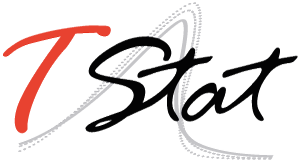Production frontier models have over the years become an indispensable tool of analysis for both scholars and practitioners interested in the measurement of performances through efficiency scores, in academia, business and government. This course provides participants with both the knowledge and requisite applied toolset for applying frontier methods to cross-section and panel data in Stata.
The course begins by focusing on stochastic frontier models – parametric models implemented in Stata using the frontier and xtfrontier commands for cross-section and panel data respectively. Participants are also introduced to the user-written commands sfkk (Karakaplan, 2017), sfcross and sfpanel (Belotti et al., 2013).
The remaining sessions focuses on the non-parametric approach to frontier models, referred to in the literature as data envelopment analysis (DEA). Session 2 centers on radial and non-radial efficiency measures, along with the derived concepts of scale efficiency and the Malmquist productivity index (Färe et al., 1994), using the user written commands teradial and tenonradial (Badunenko and Mozharovskyi, 2016). Session 3 illustrates the concept of bootstrap inference for radial measures as developed by Simar and Wilson (1998) and (2000), along with bootstrap tests of independence (Wilson 2003) and returns to scale (Simar and Wilson, 2002). These procedures are implemented in Stata by nptestind, nptestrts and teradialbc (Badunenko and Mozharovskyi, 2016). The course closes with a discussion of the user written command simarwilson, a procedure which implements the Simar and Wilson (2007) approach to identify the impact of external factors on DEA efficiency scores (Badunenko and Tauchmann, 2019).
At the end of the course, participants are expected to be able to: i) autonomously implement (with the help of the Stata routine templates specifically developed for the course) the appropriate methodology, given both the nature of their data and the analysis in hand, and ii) to have mastered the concepts of: stochastic, parametric and non-parametric frontier model analysis.
In common with TStat’s training philosophy, each individual session is composed of both a theoretical component (in which the techniques and underlying principles behind them are explained), and an extensive applied (hands-on) segment, during which participants have the opportunity to implement the techniques using real data under the watchful eye of the course tutor. Throughout the course, theoretical sessions are reinforced by case study examples, in which the course tutor discusses and highlights potential pitfalls and the advantages of individual techniques. The intuition behind the choice and implementation of a specific technique is of the utmost importance. In this manner, the course leader is able to bridge the “often difficult” gap between abstract theoretical methodologies, and the practical issues one encounters when dealing with real data.
The course is of particular interest to researchers and professionals working in business, government, economics, banking, finance, social and political sciences needing to acquire the necessary analytical tool set to evaluate performance through production efficiency scores.
Course participants are required to have a good working knowledge of:
- topics covered in TStat Training’s micro data analysis course;
- Truncated regression method;
- Censored regressions;
- the statistical software Stata: including familiarity with Stata variable creation commands and Stata do files.
SESSION I: STOCHASTIC FRONTIER MODELS
1. Cross-section models: frontier
2. Panel-data models: xtfrontier
3. Models with endogenous variables: sfkk
4. Cross-section and panel data extensions: sfcross, sfpanel
SESSION II: DEA IN STATA – EFFICIENCY MEASURES
1. Radial (teradial) and non-radial (tenonradial) measures of technical efficiency
2. Scale efficiency
3. Computing the Malmquist productivity index through teradial
SESSION III: DEA IN STATA – BOOTSTRAP INFERENCE
1. Testing independence: nptestind
2. Testing scale returns: nptestrts
3. Bias-corrected radial efficiency measures: estimation and inference through teradialbc
SESSION IV: DEA IN STATA – THE SIMAR-WILSON APPROACH TO THE DETERMINANTS OF EFFICIENCY
1. Single and double bootstrap algorithms
2. Implementing the bootstrap algorithms through the command simarwilson
SUGGESTED READINGS
- Badunenko, O. & Mozharovskyi P. (2016). Nonparametric frontier analysis using Stata. Stata Journal 16: 550–589.
- Badunenko, O. & Tauchmann H. (2019). Simar and Wilson two-stage efficiency analysis for Stata. Stata Journal 19: 950–988.
- Belotti, F., Daidone S. & Ilardi G. (2013). Stochastic frontier analysis using Stata. Stata Journal 13: 719–758.
- Färe, R., Grosskopf S. & Knox Lovell C.A. (1994). Production Frontiers. Cambridge University Press.
- Karakaplan, M. U. (2017). Fitting endogenous stochastic frontier models in Stata. Stata Journal 17: 39–55.
- Simar, L. & Wilson P. W. (1998). Sensitivity analysis of efficiency scores: How to bootstrap in nonparametric frontier models. Management Science 44: 49–61.
- Simar, L. & Wilson P. W. (2000). A general methodology for bootstrapping in nonparametric frontier models. Journal of Applied Statistics 27: 779–802.
- Simar, L. & Wilson P. W. (2002). Non-parametric tests of returns to scale. European Journal of Operational Research 139: 115–132.
We are currently putting the finishing touches to our 2024 training calendar. We therefore ask that you re-visit our website periodically or contact us at training@tstat.it should the dates for the course which you are interested in following not yet be published. You will then be contacted via email as soon as the dates are available.
ONLINE FORMAT
Production frontier models have over the years become an indispensable tool of analysis for both scholars and practitioners interested in the measurement of performances through efficiency scores, in academia, business and government. This course provides participants with both the knowledge and requisite applied toolset for applying frontier methods to cross-section and panel data in Stata.
